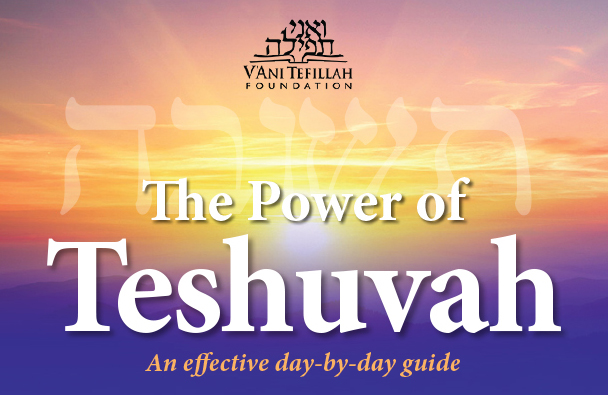The Power of Teshuvah – Day 23

Day 23
Strategy 4: Make It Real
Two men are walking along the train tracks. When the conductor of an oncoming train notices them, he begins to blast a shrill warning whistle. Both men hear the whistle. One is a simple farmer who has never seen a train. Unaware of what the sound means, he continues walking, enjoying the view and the sound of the whistle. The other person, a city dweller, understands the warning and immediately flees from the oncoming danger.
While both men physically hear the noise of the whistle, only the second one can be said to have properly heard and understood the message: “Leap into action and save your life. Your future is in your hands!”
Are we like the city dweller or the country boy in our response to the “warning whistle” of Elul and the Yamim Noraim? We are a little of each. Like the city dweller, we know what we are hearing. It is Elul, and Rosh Hashanah is speeding toward us. Like the country boy, however, we do not feel the urgency to swing into action and do what is necessary to save our lives.
The reason we are able to know and yet not act is because knowledge in our heads does not have the power to move us to action. Only when the knowledge enters our hearts — becomes a reality as certain as a train hurtling down the tracks — do we feel the internal drive to act.
This divide between heart and head was the subject of a lecture by Rav Elyah Lopian. He based his words on the verses in the Haftarah read on Shabbos Shuvah, the Shabbos proceeding Yom Kippur:
“Return, O Israel, to Hashem, your God”— Return, O Israel, until you say in your mouth and remember, constantly, that Hashem is your God. That means you should know and feel that Hashem is your Caretaker for everything. Why do we not feel this? The end of the verse is the reason —“for you have stumbled through your iniquity.”
What is the solution? The beginning of the next verse provides the answer — “Take words with you and return to Hashem.” Take the words into your heart and return to Hashem. This must be a feeling that resides in one’s heart, since knowledge alone does not change behavior. Motivation to change emanates from feeling.
In fact, a deeper reading of yirah, the Hebrew word for “awe/ fear,” discloses that it shares the same root as the word “re’iyah — seeing.” In the simplest sense, yirah means “seeing” the reality of the consequences.
Imagine if we could see the germs left on a drinking glass. No doubt, we would be powerfully motivated to scrub it with soap and hot water to avoid contamination. Without that visual evidence, however, one tends to give the glass a quick rinse and consider it clean enough. Likewise, if we could see the impact of our sins on our souls, we would waste no time finding ways to do teshuvah. However, when we do not “see,” then it is more difficult to motivate ourselves to expend the energy on teshuvah.
In our struggle to change, we have to cultivate the emotions necessary to boost our motivation. In that way, we can make something real of our hope to do teshuvah, to change our lives for the better and to merit a year full of blessing and success.
Points to Ponder:
-
-
- We know intellectually that teshuvah is necessary, but that knowledge does not easily translate into action.
- Yirah inspires us to see in a concrete way the consequences of our misdeeds.
- The more we make Hashem a reality in our lives, the greater our motivation for teshuvah will be.
-

